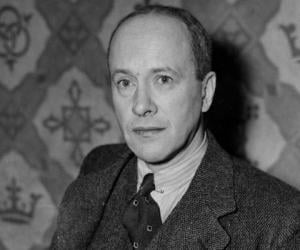Walter Duranty Biography
(Journalist)
Birthday: May 25, 1884 (Gemini)
Born In: Liverpool, England
Walter Duranty was an English-born Anglo-American journalist who worked with ‘The New York Times’ from 1922 to 1936. In 1932, he was awarded with a Pulitzer Prize for the reports he wrote on the Soviet Union. Born in a middle-class household to a merchant, Duranty attended Harrow, one of the most popular schools in Britain. After his family faced a financial collapse, he transferred to London’s Bedford College. He later gained a scholarship to complete his education at Cambridge’s Emmanuel College. During his college years, Duranty enjoyed his life thoroughly. Following his graduation with a first-class degree, he joined ‘The New York Times’ as a reporter. As a journalist, he covered the Great War. Between 1918 and 1921, Duranty earned a good reputation for preparing reports on the Russian Revolution. Following the war, he became the Moscow Bureau Chief for ‘The New York Times,’ a post he held for fourteen years. Duranty died in 1957 at the age of 73.
